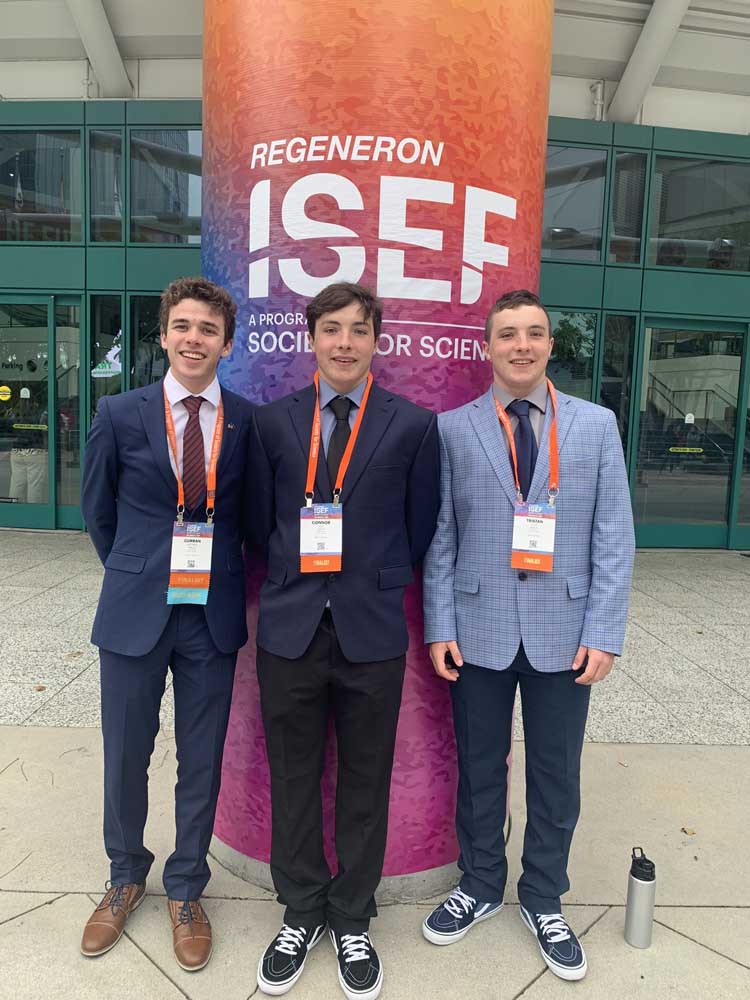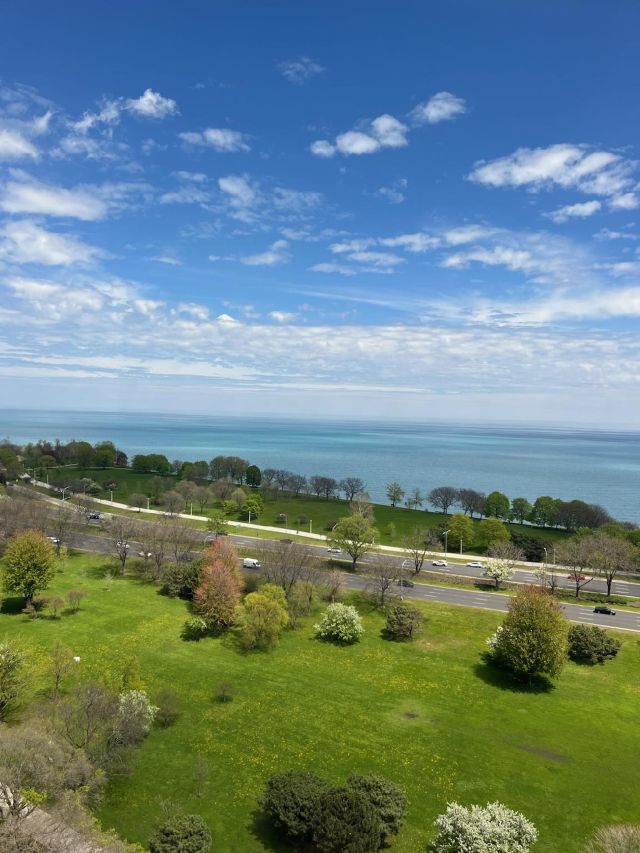Bend high schoolers presented at international science fair
Published 5:15 am Saturday, June 1, 2024

- Local students, Curran Jacobus and Connor and Tristan Huet, working with Bend Science Station attend the Regeneron International Science and Engineering Fair in Los Angeles in May.
For the past school year, Summit High juniors Connor and Tristan Huet, who are twins, researched how well different kinds of wood work as water filters.
Across town at Bend High, senior Curran Jacobus spent the year investigating the different ways chemists discover new medicines and how they can be improved.
This level of work is what science educators hope students strive for. As Bend Science Station instructor David Bermudez put it, learning with students as they research is the most interesting part of his job.
It allowed these students to present along with thousands of others at the Regeneron International Science and Engineering Fair in Los Angeles this May. The Huet brothers participated in the Bend Science Station’s research program this school year, and received guidance from staff. Jacobus researched on his own time, but has participated in science station classes before.
“There’s a lot of categories that have college-level research going on in them, so it’s really inspiring to see other students from around the globe doing science at that level,” said Tristan Huet.
Researching after school
The Huet brothers researched how well different wood species worked as water filters, plugging a hose with a wood cutting. They found that ponderosa and white pine trees worked well of the species they tested to filter water. The goal was to keep it as simple as possible, the twins said.
“We used wood out of trees to make a water filter,” said Tristan Huet. “It was sort of optimizing which species is the most effective and why and how we can implement it in the future. What was really cool was getting to network with all the amazing people who did similar projects.”
There were close to 2,000 projects at the international fair, which was held at the Los Angeles Convention Center.
“We came (to the Bend Science Station) for summer camps for years,” said Connor Huet. “When they got the new building, we were really interested in it.”
The brothers came once or twice a week after school to work on research and were glad to have the support of the station staff.
The Bend Science Station, located on the Oregon State University-Cascades campus, is an independent center for science, technology, engineering and math education for students and teachers in Central Oregon.
Jacobus researched how pharmaceutical companies discover new medicines and how the best of those processes can be used to improve pharmaceutical design. He hopes that it serves as a new tool for medicinal chemists during the drug discovery process.
“I’ve always had a knack for asking questions, answering questions,” said Jacobus.
The Huet brothers might continue their research into water filtration, but might start another project. Jacobus is excited for the opportunities that await him next year at Stanford University.
Thousands of top-tier projects
Bermudez is happy that the students he helps are given the recognition they deserve at the international fair. Over the past 20 years, he estimated that the station has had a student qualify for the fair approximately 15 times. He’s attended multiple times with students when their parents couldn’t go with them.
“It’s just astounding when you go with students and they get a sense of how many other kids are doing research,” said Bermudez. “The breadth and the scope of the research that’s being done by high school students all across the world, and I think it’s mind-bending. When you start to see projects from kids from 72 different countries and a thousand different projects, it’s cool.”
Read more: Voters say no to Bend-La Pine Schools levy. Now what?
The fair includes talks with Nobel Laureates, and afterward, Universal Studios was reserved for the fair participants for a day.
The science station staff accept five to 10 students a year for its independent research class, providing students with support, tools and expertise to ensure they safely collect data to potentially present at a science fair. Staff guide kids in the direction of specific research if they only come in with a general interest. They also assist with trial and error of procedures and methods.
“If you actually honor that kids are coming with questions in their own interest area, you’re sort of learning in parallel with them,” said Bermudez. “It’s probably the most creative and interesting part of my job load.”
If they want to participate in fairs, student begin with the regional fair, which this year was at Central Oregon Community College. The top one-third of all participants advance to the state fair in Portland. The best of those participants move onto the international fair, which has changed sponsors and cities in the past. The international fair pays for all costs associated with attending.
“From our kindergarten through high school programming, our focus is on helping kids develop the skills to ultimately ask and answer their own questions,” said Bermudez.






